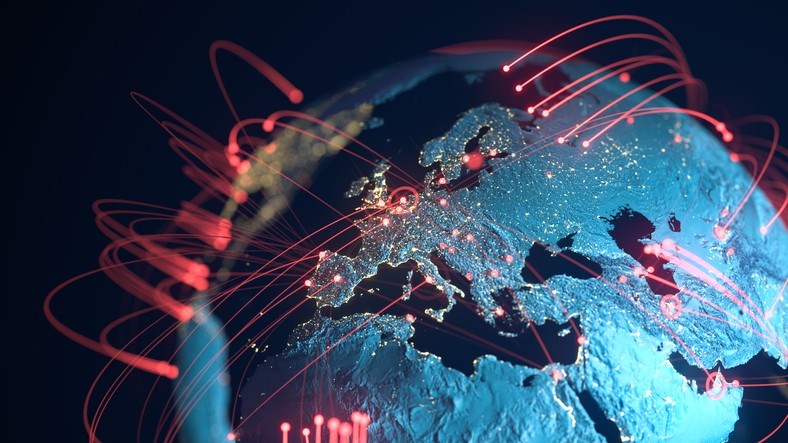Anyone who knows me knows I'm a t-shirt guy, favouring threads with provocative slogans. Conversation starters. I find some by accident, seek out others. One I haven't found but have contemplated printing would read: "F*ck the Economy."
Of course, advertising such a phrase doesn't mean advocating it. In the same way "Your God Sucks" points to the ugly, core truth of superiority built into religions, "F*ck the Economy" is invitation to think more deeply about what this means. To start, it's absurd. But only as absurd as the unstated opposite-"Economy Uber Alles." Because public policy so often tilts toward concern for it that economic prosperity has, in effect, become a de facto euphemism for F*ck the Environment, the slogan cuts to the heart of it.
Being overprotective of economies in the face of existential threats requiring serious action that might somehow impact them is a feature of modern life-the stumbling block for improving our approach on so many fronts it would be a waste of space to enumerate them. But you know where I'm going.
Yes, the economic ecology of the COVID-19 pandemic is telling: to save the economy from undue impact, the original outbreak was covered up (we know now it started in November; the doctor who raised the alarm has since died-presumably of COVID-19); then, when shit hit the fan-and despite extraordinary measures to cordon off a province of 60-million-China and the rest of the world embraced only weak half-measures that flew (pun intended) in the face of what was actually needed given the virus's demonstrated rapid spread and the capacity of most Public Health Systems. And so here we are, economically unprepared for what has been warned of for a century-since the flu pandemic of 1918.
The past decade has seen much discussion on how economies need to build "climate resilience." Yet, in spite of recent epidemics like SARS, H1N1, Chikungunya, Ebola, and Zika, far less talk of building "disease resilience." Almost certainly this is due to western economies seeing themselves as less susceptible because of stronger PHS, with the counterintuitive result of a steady erosion of that capacity through funding cuts by neoliberal-minded governments (a video even surfaced on March 16 of Trump ranting in 2018 about cutting the "over-funded" U.S. pandemic team). During the current crisis, such recklessness is revealed as systemically problematic, as many health professionals warned.
Let's be clear, this pandemic will change the world forever. But it is, essentially, an environmental pandemic, with origins in the illegal wildlife trade. And a globalization pandemic, turbocharged by travel and the need to maintain a fundamentally interwoven global economy. Most importantly, it's a pandemic of economic hubris, where most countries adopted only haphazard measures for a threat they deluded themselves into thinking wasn't all that real. There was an illusion of containment of the limited cases outside China. Until the Diamond Princess. Until Iran. Until Italy.
In the Seattle area, back-calculations indicate the virus has been circulating since January but remained undetected until it began killing patients at a nursing home. Something similar, albeit delayed, happened in North Vancouver. Back in those halcyon days of January, before any cases were confirmed in Canada and only 17 deaths recorded, Bloomberg reported that should the coronavirus spread, it couldn't come at a worse juncture for the Canadian economy, which was "emerging from...its weakest growth performance since 2016." It noted how the outbreak resembled the 2003 SARS epidemic where Toronto recorded the most deaths outside Asia, tanking tourism and severely impacting the country; Canada's economy actually shrank during the quarter coinciding with the outbreak, in part due to concomitant falling commodity prices. Ultimately, SARS wiped $40 billion from the world economy.
Since then, China's role as global driver of commodity prices has spiked, meaning, Bloomberg suggested, that were Canada to dodge a possible global pandemic, even indirect exposure of our economy to impact on the Chinese economy would make 2003 seem like a picnic. This is true of most countries, so dependent are they on China for manufactured goods and as a resource customer. In as much, there's a glaring lack of economic buffering for the scenario now unfolding. Zero resilience. Just look at airlines. We now have the unfortunate opportunity to observe that Bloomberg was correct-though teasing this apart from direct effects will be an interesting post-hoc exercise.
As the waves of bad news wash over us, good news stories of otherwise profligate consumerists pitching-in stand out: French luxury goods icon Louis Vuitton is dedicating its perfume and cosmetics production facilities to making large quantities of hand sanitizer for hospitals free of charge. In support, I might buy one of their t-shirts.
Next time: In every crisis...lies opportunity.




